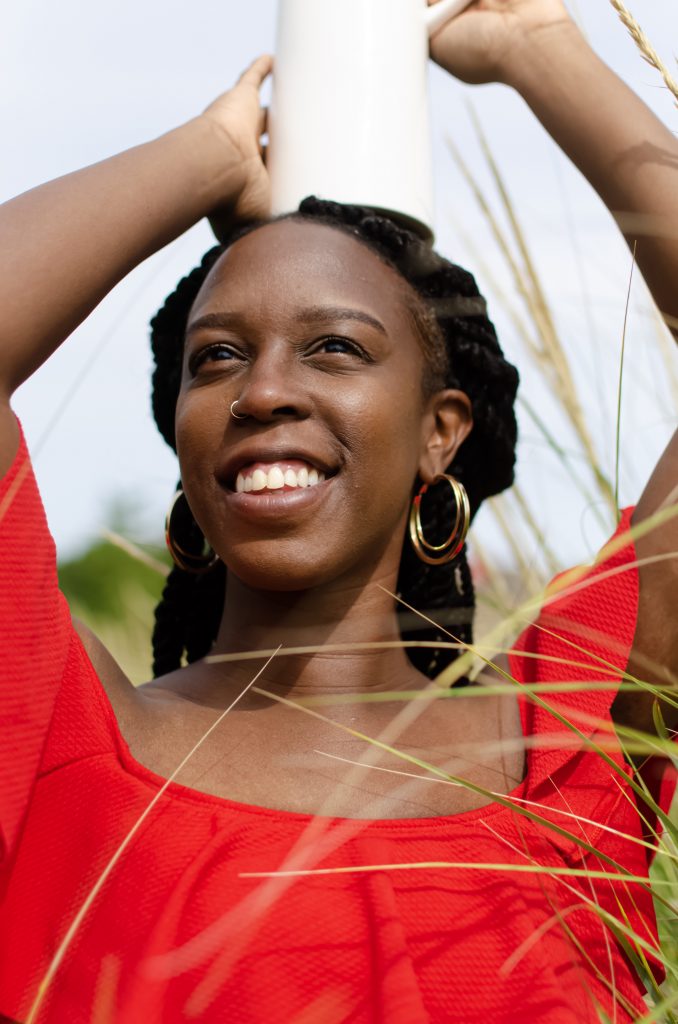
Friends, I am so proud to share today’s guest contributor–and her words–with you today. Dara Winley, PhD, is a family therapist practicing in the Chicagoland area. She received her Masters and doctorate MFT degrees from Drexel University in Philadelphia. While in Philadelphia, she served at Epiphany Fellowship Church for 8 years. She is a lover of Jesus and community. She is the oldest of four girls and a friend to many.
I hope you will read this post in earnest. So many of us make the mistake of thinking the centuries old wound of racism can be fixed through the work of sheer niceness and good will, but God is calling us to much more. Thank you, Dara, for offering your wisdom and counsel. It is a tremendous gift.
Welcome Dara!
Take Care of Black Women…in the Church
by Dara Winley
“Do not merely look out for your own personal interests, but also for the interests of others” Philippians 2:4
Remember back in kindergarten when we would all participate in show-and-tell? Each person had a turn. No one interrupted the person who had the floor. Instead, everyone would listen and learn while eagerly awaiting the moment when they could share about their own object of choice.
Isn’t it still like show-and-tell sometimes, where we are sometimes more excited about the telling than the learning part?
Well, I have brought along with me my own story, and I hope you will be eager to listen and learn from what I have to share.
Some of my earliest memories of church are of greetings from friendly ushers, peppermints being passed from Sister “so and so”, of sharing laughter with siblings in the pews as the ladies with the big hats and tambourines in front of us swayed from side to side to harmonious call and response songs, big hugs and warm embraces, and the white gloves and skirts in holy preparation of communion as we prepared to go home until next Sunday.
The rich recollection and reminisce of my childhood church experience has always stuck with me. Church has always been a place of refuge and hope for me, which has been immensely appreciated as time has passed. As a Black woman, being a part of predominately Black churches, I never had to think twice about who I was in relation to my congregation. I just knew that my presence was seen and valued.
This is why, when I first entered into a white-cultured church with a majority white presence, it was very new for me. At that time in my life, I felt led to a particular, predominantly white church for its ability to provide me with opportunities to deepen my spiritual gifts as well as meeting other needs I had in my life. I’d been in majority-white spaces before, so I assumed what it would be like. However, I never experienced being the “only” or “other” in a church setting before.
Somewhere in this new journey, however, it became difficult. My smiles grew old after tirelessly hearing how I should be able relate to any given Black person that was met on a walk, grocery store run, or job who, because of our shared minority status must be in some way “similar to me”. It became tiring just being expected to teach and explain on behalf of the Black community. I grew weary enduring micro and macro-aggressions and having to prove to others that my experience was real. I was exhausted dealing with what I saw as white privilege and unconscious bias. These feelings were very real to me…incredibly painful and isolating. Through the experience, I later came to find that I had specific expectations and values which I was unable to find outside of a predominantly Black church.
It’s easy for Black women to dismiss and minimize these experiences. It’s also easy to overlook, assume or underestimate the needs of Black women. In our culture, Black women are consistently thought to be “the counselors” or “mothers” of the church, which is a seemingly familiar role in familial and societal settings. While caring for and nurturing the needs of others is a gift, God also wants Black women to feel cared for in his body of Believers. My experience was hard, but I have learned so much about myself and others through it. My hope is that by sharing these tips to consider when caring for Black women in your church, that we can encourage and sharpen each other to be better listeners within God’s body.
Awareness. Fostering care first requires awareness of societal-historical processes and the lived experiences of those within the Black community. Black women have a long and intricate history within the church. They serve as the backbone of many of the systems that we still utilize today. By familiarizing oneself with the history of Black women in this country, we open ourselves up to learn about their historical role in the church. Read books by Black authors and listen to stories of Black women. This is an ongoing process, but one that is sure to be enlightening.
Commit to know her with your actions. In Mark 12:30-31, the Bible states, “Love your neighbor as yourself”. I’ve seen love happen preferentially, but God wants us to love ALL of our neighbors as ourselves, including those who may not look like us. Doing things like making plans to see each other outside of service, getting out of the comfort zones that we hold ourselves so closely to, and intentionally seeking to know what her world is like, creates an opportunity to share experiences.
Respect her autonomy, personhood, and space. As much as she may appreciate the invitations for dinner and lunch, she also may need to pursue her own space at times. Respect her desire to pursue and become committed to relationships in communities with other people of color. God desires for all of us to grow in loving and caring for ourselves. Sometimes being affirmed and reminded that we are fearfully and wonderfully made may come from Black specific spaces. Although this may not apply to every Black woman, respect and support the one whom it does apply to. If anything, ask her how you can support her in finding resources.
Don’t assume- ask questions. If you are confused or unsure of something, just ask thoughtful questions. Avoid making definite statements about her experiences. Be curious and pay attention to what is said so you can gain understanding (Proverbs 4). Assumptions can lead to misunderstandings and miscommunication. Take time to have crucial conversations that can allow for better outcomes between people.
Acknowledge when you are wrong. As in any relationship, it is easy to avoid conflict and overlook an offense. As written in Matt 18:15, if your brother sins against you, go and tell him his fault, between you and him alone. If he listens to you, you have gained your brother.” Acknowledge your wrongs to others- that is the first step towards reconciliation and can be so freeing to the victim. I have witnessed ways in which people defend themselves, hurting the other person even more. It is better to hear someone out, ask questions, and pursue reconciliation (as much as possible). While every situation is unique and nuanced, it is the heart of God to see his children pursue peace between one another (Matthew 5:9).
Do your work. Racism and discrimination are all very deep experiences that continue to occur within the community and the church. It can be identified in the form of micro/macro aggressions and stereotypes. Acknowledging privilege is crucial because most of the time it is an unconscious, blind experience that often leaves those on the other side of it feeling invalidated and dismissed. By having a willingness and fervent commitment to confront these areas when called out, this can be addressed quickly. This is a continual process so be open to feedback and correction as often as it happens.
The more we hear and are exposed to the stories and experiences of others, the more we develop empathy for others. Sometimes stories are hard to believe, because we have no experience of our own with them. Jesus was famous for having “crucial conversations”. He walked into many uncomfortable stories, and yet he was intentional about listening to and becoming a part of the experiences of many who others would overlook. Through his example of seeking out the “other”, spending time learning and loving from those deemed by some as “outcasts” he teaches us how to pursue, love, and care for the marginalized people of our society. Jesus wants the same from us; His church. He needs us to be a part of that mission by serving as his hands and feet.
Black women, Jesus loves you! He wants you to feel his unending love for you. There is no mistake in your design, your personality, or your personhood. Pursue spaces in and outside of the church to learn and affirm your heritage.
Thank you for listening to my story.
And thank you for being willing to hear the story that may come after mine.
Whether there are many similarities or many differences, if we remember to listen with love, we will together learn how to be intentional in hearing the unique stories of others.




